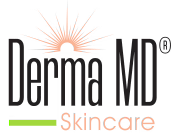Copper-GHK
This peptide plays a crucial role in various biological processes, including wound healing, tissue remodeling, and anti-inflammatory responses.
Skin Rejuvenation: One of the primary reasons people turn to Copper Peptides is its exceptional skin rejuvenation properties. This peptide stimulates the production of collagen, elastin, and glycosaminoglycans, all of which are essential for maintaining youthful and healthy skin. As we age, these elements naturally decline, leading to wrinkles, sagging, and a loss of firmness. Copper Peptides can help turn back the clock by promoting the synthesis of these critical components.
Wrinkle Reduction: Are fine lines and wrinkles causing you concern? Copper Peptides may be the answer you’ve been looking for. By stimulating collagen production and enhancing skin elasticity, this peptide can visibly reduce the appearance of wrinkles, crow’s feet, and expression lines. Over time, regular use can lead to smoother, more youthful-looking skin.
Anti-Inflammatory Effects: Inflammation is a common enemy of healthy skin. Copper Peptides possesses potent anti-inflammatory properties, helping to soothe irritated and sensitive skin. It can be particularly beneficial for individuals with conditions like rosacea or eczema, as it may reduce redness and discomfort.
What is GHK?
GHK (glycyl-L-histidyl-L-lysine) is a naturally occurring peptide originally found in human serum and shown to stimulate growth in hepatoma cells [1]. The molecule has a very high affinity for copper (II) and forms the chelate GHK-Cu. The plasma level of GHK is about 200 ng/ml at age 20 but declines to 80 ng/ml by age 60. However, no studies have yet been reported linking low serum GHK levels with specific aging processes or age-related disease. The peptide is cleaved and released from its parent protein SPARC during the degradation of extracellular matrix, to aid in tissue remodeling by increasing levels of angiogenesis [2]. Both GHK and GHK-Cu have been shown to have anti-inflammatory and tissue remodeling properties. GHK-Cu has been studied in clinical research showing positive effects on skin remodeling and regeneration.
REFERENCE: Aging Pathobiol Ther. Author manuscript; available in PMC 2022 Jan 25.
Published in final edited form as:
Aging Pathobiol Ther. 2020 Mar 27; 2(1): 58–61.
doi: 10.31491/apt.2020.03.014
PMCID: PMC8789089
NIHMSID: NIHMS1754259
PMID: 35083444
Skin Rejuvenation: One of the primary reasons people turn to Copper Peptides is its exceptional skin rejuvenation properties. This peptide stimulates the production of collagen, elastin, and glycosaminoglycans, all of which are essential for maintaining youthful and healthy skin. As we age, these elements naturally decline, leading to wrinkles, sagging, and a loss of firmness. Copper Peptides can help turn back the clock by promoting the synthesis of these critical components.
Wrinkle Reduction: Are fine lines and wrinkles causing you concern? Copper Peptides may be the answer you’ve been looking for. By stimulating collagen production and enhancing skin elasticity, this peptide can visibly reduce the appearance of wrinkles, crow’s feet, and expression lines. Over time, regular use can lead to smoother, more youthful-looking skin.
Anti-Inflammatory Effects: Inflammation is a common enemy of healthy skin. Copper Peptides possesses potent anti-inflammatory properties, helping to soothe irritated and sensitive skin. It can be particularly beneficial for individuals with conditions like rosacea or eczema, as it may reduce redness and discomfort.
What is GHK?
GHK (glycyl-L-histidyl-L-lysine) is a naturally occurring peptide originally found in human serum and shown to stimulate growth in hepatoma cells [1]. The molecule has a very high affinity for copper (II) and forms the chelate GHK-Cu. The plasma level of GHK is about 200 ng/ml at age 20 but declines to 80 ng/ml by age 60. However, no studies have yet been reported linking low serum GHK levels with specific aging processes or age-related disease. The peptide is cleaved and released from its parent protein SPARC during the degradation of extracellular matrix, to aid in tissue remodeling by increasing levels of angiogenesis [2]. Both GHK and GHK-Cu have been shown to have anti-inflammatory and tissue remodeling properties. GHK-Cu has been studied in clinical research showing positive effects on skin remodeling and regeneration.
REFERENCE: Aging Pathobiol Ther. Author manuscript; available in PMC 2022 Jan 25.
Published in final edited form as:
Aging Pathobiol Ther. 2020 Mar 27; 2(1): 58–61.
doi: 10.31491/apt.2020.03.014
PMCID: PMC8789089
NIHMSID: NIHMS1754259
PMID: 35083444
